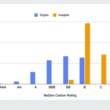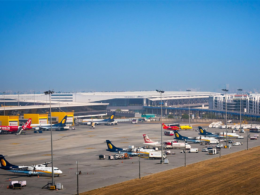RMI (formerly Rocky Mountain Institute), a US-based think-tank, and World Energy have signed an agreement for RMI’s largest purchase to date of sustainable aviation fuel certificates (SAFc) to offset emissions from its business travel and promote aviation sector decarbonisation. This purchase is expected to reduce RMI’s emissions by 954 metric tons of CO₂ equivalent over five years, equating to the emissions generated by over 1,500 round-trip economy flights between New York and San Francisco.
The agreement is part of a broader initiative by the Sustainable Aviation Buyers Alliance (SABA), through which over 20 companies have collectively backed the purchase of SAF certificates from nearly 50 million gallons of sustainable aviation fuel, resulting in 500,000 metric tons of CO₂ emissions reduction.
“Air travel is a significant contributor to carbon emissions, and as an organization that frequently engages in international collaboration, we recognise our responsibility to mitigate our environmental impact,” said Bryan Fisher, managing director at RMI. He added, “By investing in sustainable aviation fuel certificates – a tool we helped pioneer – we are helping drive demand for SAF, advancing the adoption of new fuel technologies, and setting a strong example for companies increasingly focused on addressing climate change.”
World Energy, a leader in sustainable aviation fuel (SAF) production, has collaborated with SABA on several SAFc procurement efforts and emphasizes its mission to decarbonise supply chains.
“World Energy has been proud to put many of RMI’s ideas and models for the SAF market into practice in the corporate world,” said Kathleen Wight, World Energy’s vice president of Net Zero Solutions, adding, “RMI’s commitment to using SAFc insets for its own emissions reduction sends a strong signal that real world solutions exist today in the aviation sector for those committed to net-zero travel.”
Purchasing SAF certificates allows companies to support SAF production and claim emissions reductions in their climate reporting, even if the physical fuel is used by other aircraft. SAF certificates are tracked and verified through a chain-of-custody model called “book and claim,” which is managed by the SAFc Registry, a global platform developed with RMI’s involvement to ensure transparency in the SAF market.
The SAF used for these certificates is produced with advanced hydroprocessed esters and fatty acids (HEFA) technology from sustainable feedstocks such as waste fats and oils, certified to meet stringent sustainability criteria consistent with SABA’s standards.

















